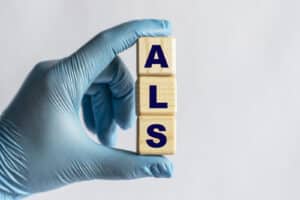Elder Care Benefits for Seniors with ALS Symptoms

ALS: Elder Care Evanston IL
Amyotrophic lateral sclerosis (ALS) is a progressive neurodegenerative disease that affects the nerve cells responsible for controlling voluntary muscles. The symptoms of ALS can vary from person to person and can progress at different rates, but seniors may experience some common symptoms. Elder care provides comprehensive care and support to seniors with ALS to help them manage these symptoms.
Muscle Weakness
ALS can cause muscle weakness in the arms, legs, and other body parts. This can make it difficult for seniors to perform everyday activities such as walking, dressing, and eating. Muscle weakness in the throat and chest muscles can also lead to difficulty speaking and breathing.
Muscle Atrophy
As the nerve cells responsible for controlling the muscles degenerate, the muscles can shrink and weaken. This can lead to noticeable muscle atrophy, particularly in the hands, feet, and limbs.
Muscle Twitching and Cramps
Seniors with ALS may experience muscle twitches and cramps, particularly in the early stages of the disease. These symptoms can be uncomfortable but are typically not painful.
Difficulty Speaking and Swallowing
ALS can affect the muscles responsible for speech and swallowing, leading to slurred speech, difficulty forming words, and difficulty swallowing. This can make it difficult for seniors to communicate and can increase the risk of choking and aspiration.
Breathing Difficulties
As ALS progresses, it can affect the muscles responsible for breathing. Seniors with ALS may experience shortness of breath, difficulty taking deep breaths, and other breathing difficulties. This can increase the risk of respiratory infections and other complications.
Fatigue
Seniors with ALS may experience fatigue and weakness, particularly in the affected muscles. This can make it difficult to perform everyday activities and decrease quality of life.
Emotional Changes
ALS can be a difficult diagnosis, and seniors with ALS may experience various emotional changes. They may feel depressed, anxious, or angry and struggle to accept the limitations imposed by the disease.
How Elder Care Can Help
Elder care offers a variety of benefits for seniors who are struggling with the symptoms of ALS. Here are a few keys ways caregivers can help:
Respiratory Support
When ALS advances, seniors may have difficulty breathing. Elderly caregivers can aid with respiratory support, such as checking oxygen levels, coughing and clearing secretions, and maintaining breathing equipment.
Mobility Assistance
Seniors may experience muscle weakness and difficulty walking as ALS symptoms progress. Elder care can assist with mobility, helping seniors to move safely around the home and providing support during transfers.
Communication Support
Seniors with ALS may experience difficulty speaking as the disease progresses. Elder care providers can help seniors to communicate using alternative methods, such as assistive technology or non-verbal communication.
Eating Assistance
Seniors with ALS may have difficulty swallowing or chewing, which can make it challenging to eat. Elder care providers can prepare meals that are easy to swallow and provide the nutrients to support overall health.
Respite Care
Caring for a senior with ALS can be physically and emotionally demanding. Elder care providers can offer respite care, allowing family caregivers to take a break and recharge.
If you or an aging loved one are considering Elder Care in Evanston, IL, contact the caring staff at Companion Services of America today at (847) 943-3786. Our home care service area includes Northbrook, Highland Park, Deerfield, Glenview, Buffalo Grove, Evanston, Des Plaines, Skokie, Lake Forest, Wilmette and the surrounding areas.
- Understanding the Importance of Planning for a Hospital Stay - April 23, 2024
- Getting Seniors to Talk About Feelings of Loneliness - April 17, 2024
- Helping Seniors Reduce Pain and Discomfort to Gain a Good Night’s Sleep - April 10, 2024
